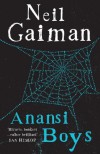William's Book Blog
Mostly book reviews. Very rarely I'll allow William Campbell Powell (author) to write a blog entry on publishing activity, but he's under orders to keep that stuff over on his Facebook page and on http://williamcampbellpowell.com
Currently reading
Jakob's Colours: the last brush strokes

This was a hard one to get into - a spur-of-the-moment audiobook which starts following a young Romany boy Jakob as he avoids captivity in the last year of WW2. Hard to get into, because initially there was a lot of time spent in Jakob's head that doesn't work well in my usual audiobook environment - commute-time traffic. I drifted and had to rewind a few times.
Then we started to get more points of view - Jakob's damaged mother Lor - and we bounce back to early war, then pre-war, and see Lor's dysfunctional parents too. Lindsay Hawdon then adds in Jakob's father, and suddenly we're following 3 points of view in 3 distinct eras. There are loose ends everywhere...
...but it's working, and Hawdon is juggling everything skilfully. Every point of view has something to say and there are none that we want to skip, in order to get back to the main PoV (if there is such a thing any more). There's a pattern unfolding nicely, and we see the connections across two decades. There are hints about the fate of the protagonists, and the minor characters (Jakob's siblings), and we know that in late-war Europe, bad things were likely to happen to gypsies. But we hope for Hawdon's creations, when we really shouldn't.
There will be tears before the end. Some will be tears of sadness - I can't believe we won't lose Lor - but I dare to think that Jakob will survive and not be broken.
The narration is somewhat quirky, with some unchild-like voices for Jakob and Cherub. It's conceivable they've been rendered that way to reflect the way that Jakob has himself been damaged by his experiences. Still, I've reached a point where I've accepted the voices and they don't grate.
This is a book that will linger when it's done....
* * *
Postscript.
And now it has come to an end. The strands converged, pretty much as I knew they had to, joining one by one until there were no loose ends. Lindsay Hawdon leaves us with hope, and with one, final, numbing shock, that says so much about humanity at its best and its worst. Sometimes you can't say which is which, and that is a daring message on which to end a book.








